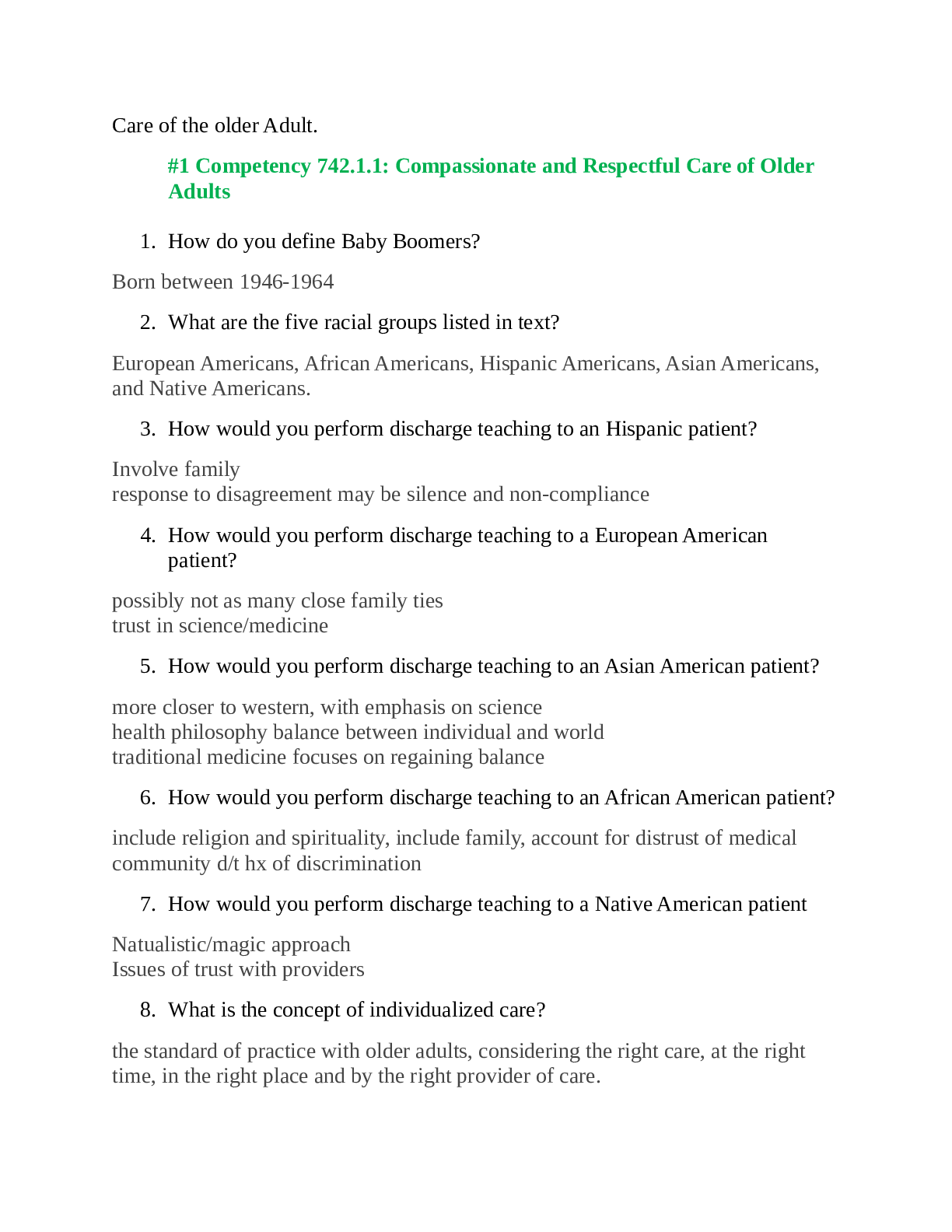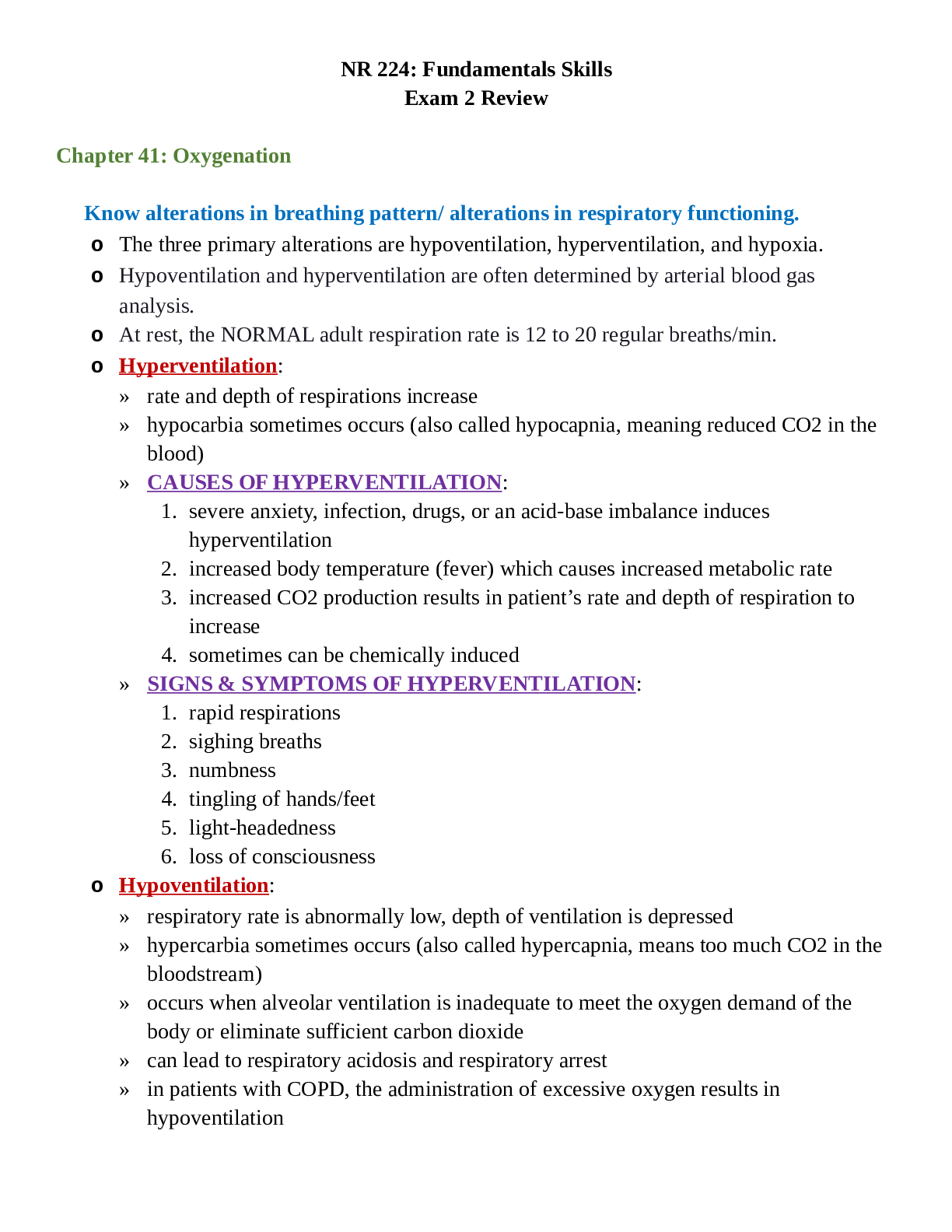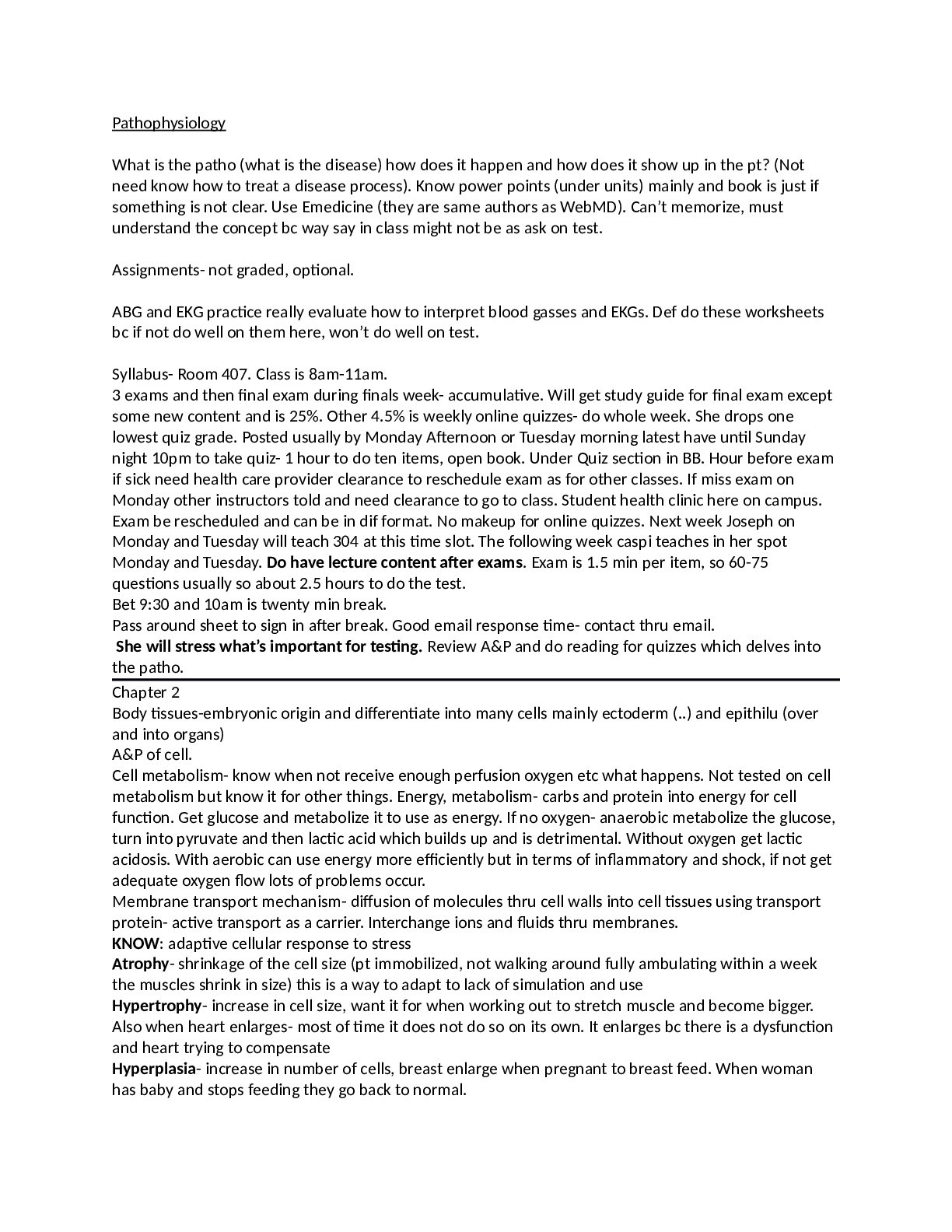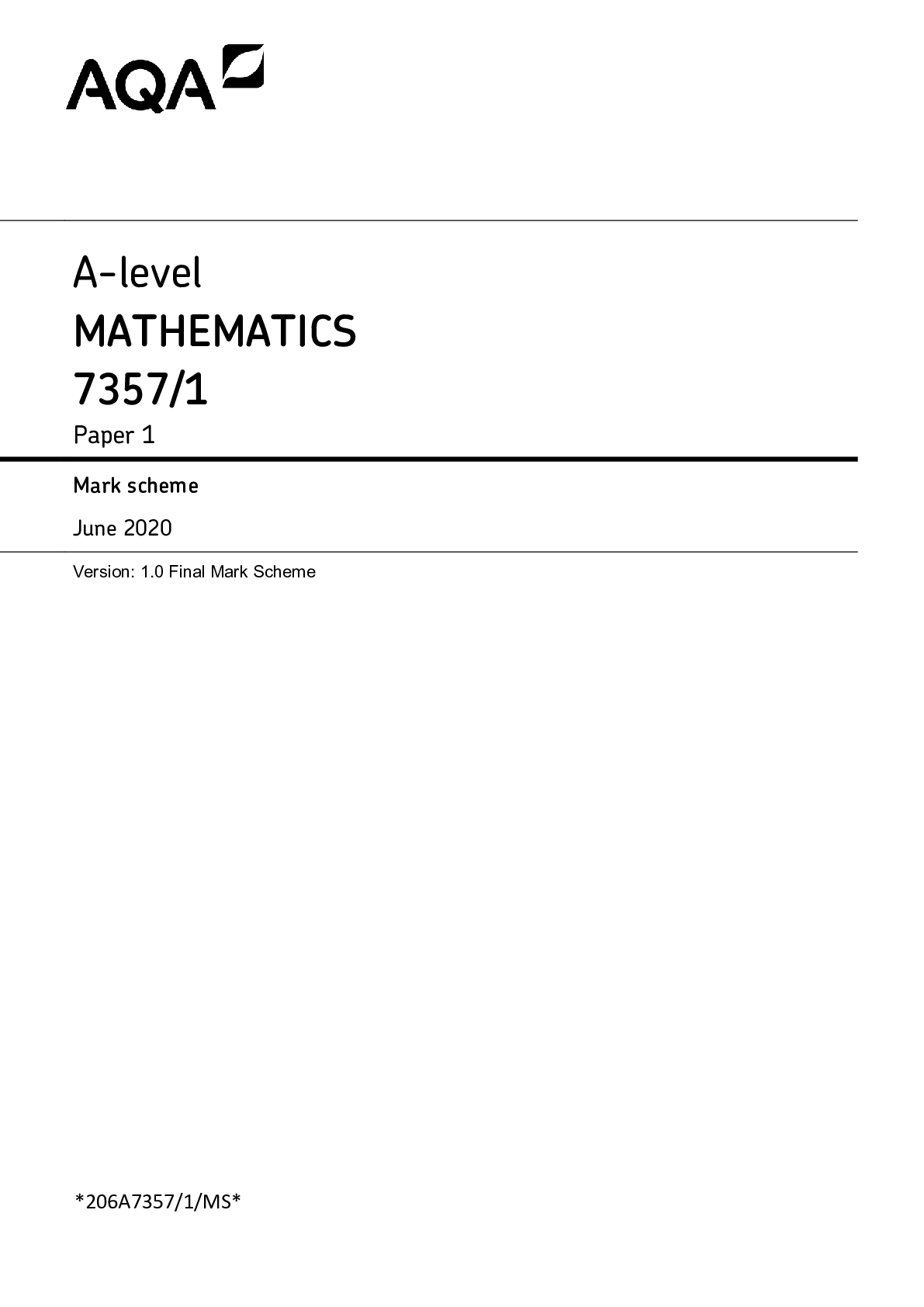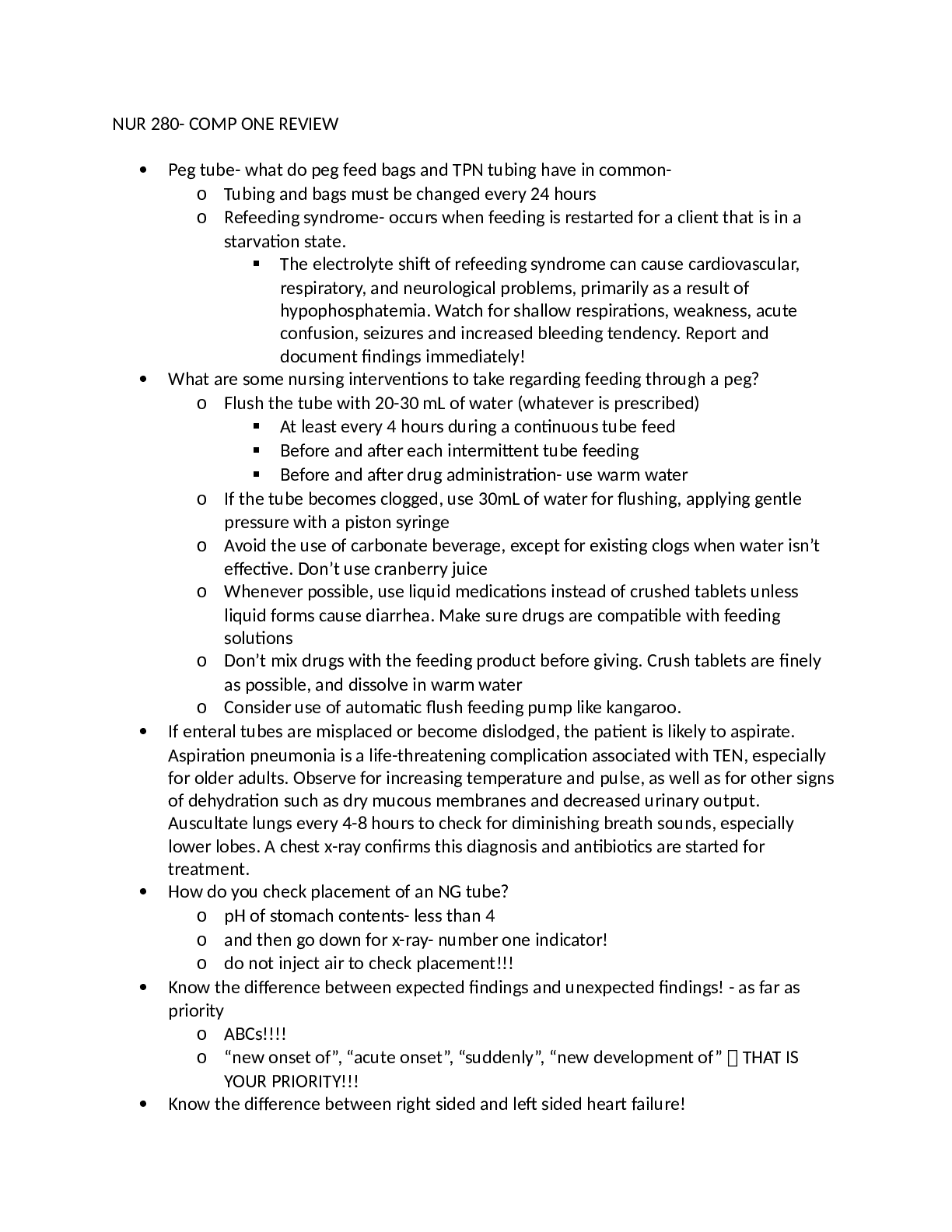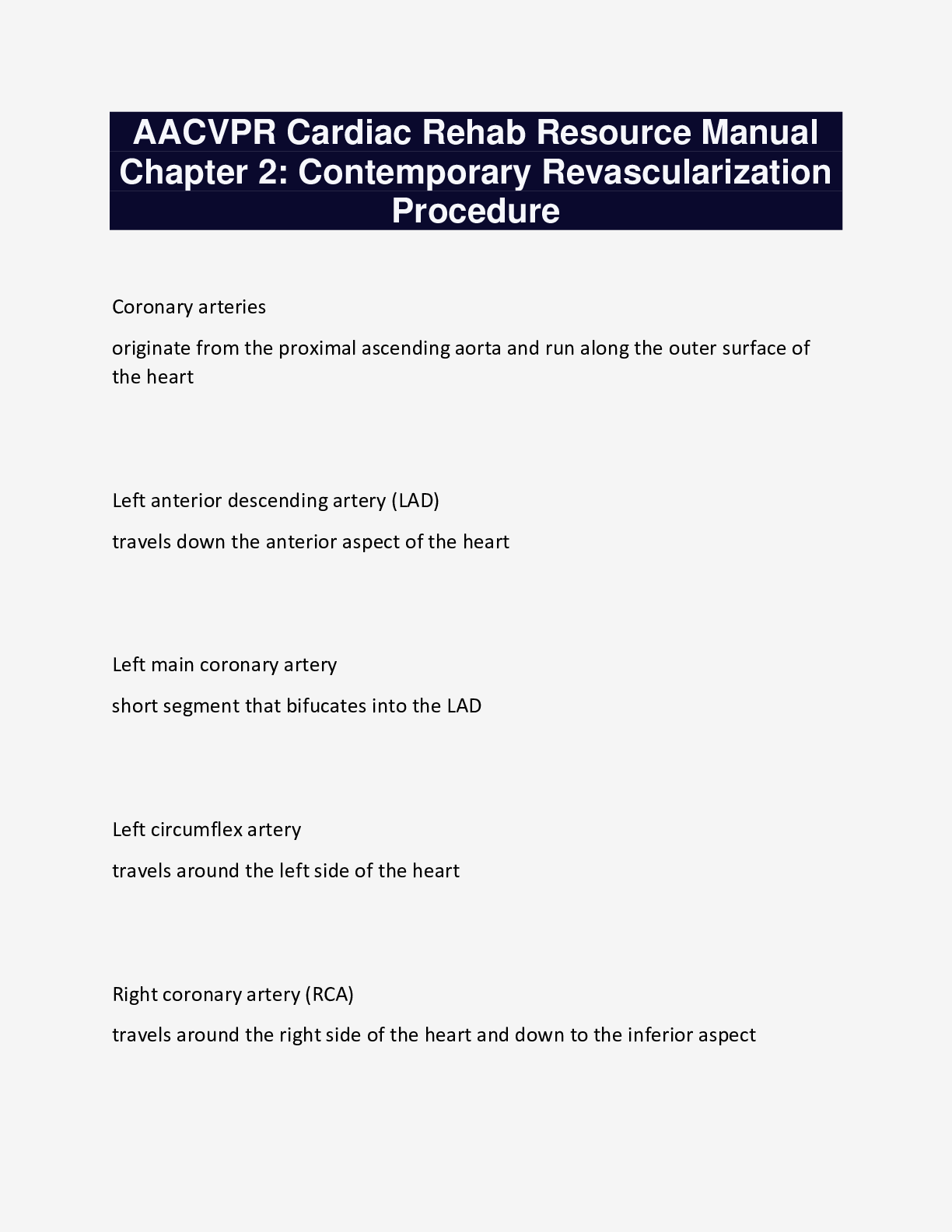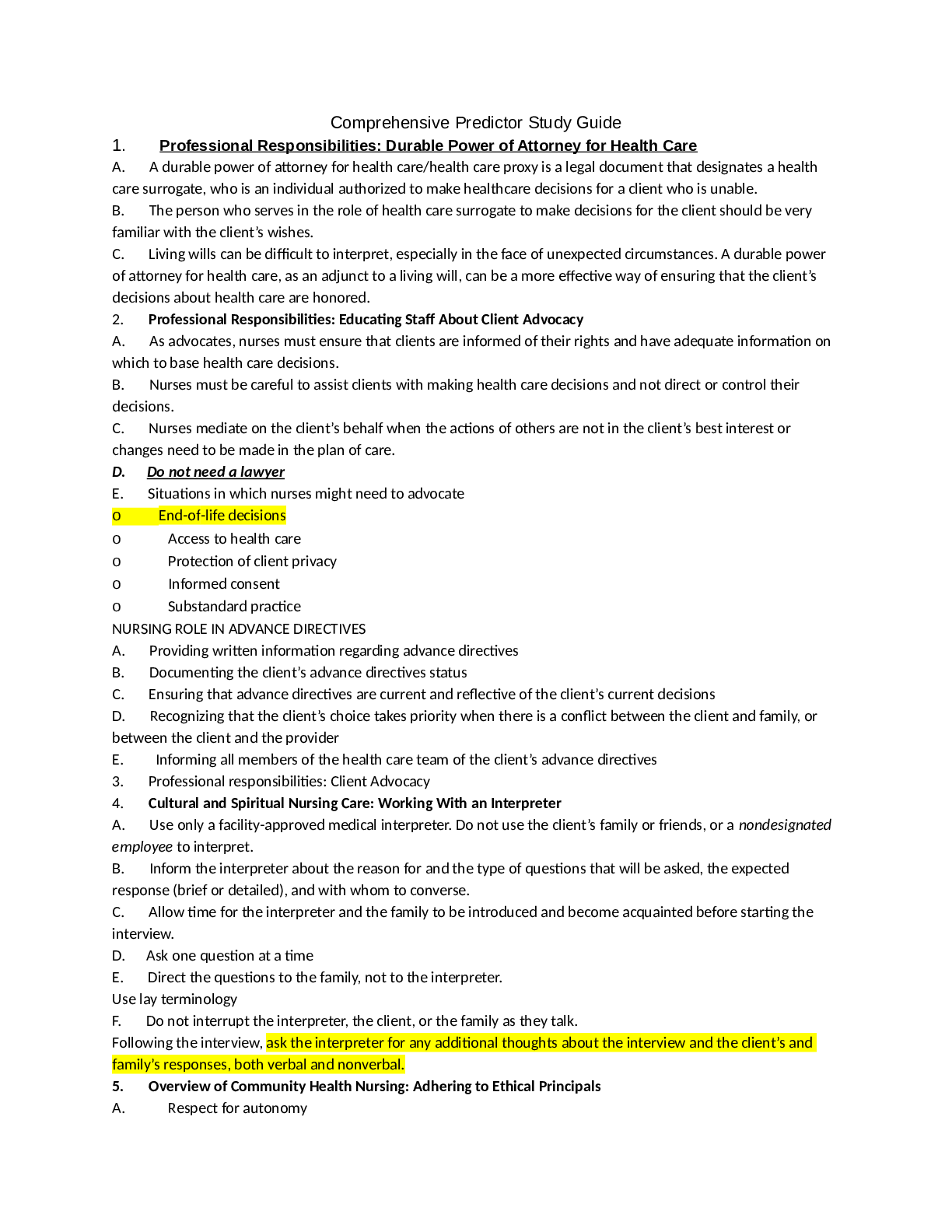Law > Solutions Guide > Law of Damages ( LPL 4802). (All)
Law of Damages ( LPL 4802).
Document Content and Description Below
Law of Damages (LPL4802)The law of damages is that part of the law which indicates how the existence and extent of damage, as well asthe proper amount of damages or satisfaction, are to be determined ... in the case of delict, breach of contract orsome other juristic fact providing for the payment of damages (for instance, legislation or insurance).This subject consists of four main partsthe general principles regarding damage and compensationthe measure of damages in the law of contractthe measure of damages in the law of delictcertain procedural and other general mattersWhen contracts are concluded and delicts are committed, the need to compensate damage is often paramount. Itfollows that an infinite variety of persons may benefit from a working knowledge of the legal principles expoundedin this subject. Persons in the legal profession, insurance industry, commerce, banking, advertising, medicine andaccounting, are just a small number of those persons who come to mind.DamagesHow damages are calculatedIf you suffer injury, loss or damage as a result of someone else's action or failure to act,you may claim damages or compensation from that person (thedefendant) if you canprove that he or she committed:Abreach of contract; orA civil wrong (delict) such as personal injury ordefamation. In delict, the lawimposes duties on everyone, whereas in contract the parties themselves maketheir own rules, which are binding on them alone. Generally, damages are aimedat putting you in the same position you would have been in had the breach ofcontract or civil wrong not occurred. Although most claims for damages aresettled without the case going to court, a settlement is usually negotiated on thebasis of what a court would be likely to award if it did have to make a ruling. Themeasure of damages depends on the type of claim:BREACH OF CONTRACT Damages for breach of contract, such asbuying and selling,are awarded on the principle that, through payment, the injured party must be placed inthe same financial position he or she would have been in had the contract been properlyperformed.INJURY Generally, damages for injury arising out of delict (civil wrong) denote thedifference between the present financial state of theplaintiffand the state he or shewould have been in had the delict not taken place. The damages cover actual loss,probable future loss, and compensation for pain and disability. (Seebreach of contract.)DEFAMATION Where the plaintiff's personality has been impaired (as in defamation),compensation damages may be awarded for the resultant insult, indignity and suffering.(Seedefamation.)General principlesDamages are awarded in one lump (monetary) sum; the court cannot order periodicpayments to be made. Furthermore, only one award can arise out of a single cause ofaction. In a damages action, whether for breach of contract or delict, you must claim damages for all damage resulting from the action, the onus being on you to establish ona balance of probabilities both the extent of damage and the amount of damages. Thismay require you to seek compensation not only for loss already sustained, but also forprospective loss, even if the full extent of your damage has not yet emerged when yourcase comes to court. Give what evidence is available - and if you can assess yourdamages financially, substantiate them. If, after giving evidence, you cannotsubstantiate your claim, the court will assess the damages to the best of its ability. Oncedamages have been assessed, you cannot claim further compensation for subsequentloss arising from the same cause of action.Mitigation (reduction) of damagesYou cannot claim damages for loss you could have avoided had you taken the steps a'reasonable man' would have taken to mitigate (reduce) damages. For example (incontract): if a hotel booking is cancelled, a hotelier can claim for full loss only if it canbe shown that reasonable efforts were made to fill the vacant accommodation (unlessthe contract provides otherwise). If the hotel was full anyway, the hotelier would haveno claim, because there would be no loss. Another example (in delict): if you cannotcontinue working in a particular job because of a disabling injury received throughanother person's negligence, you would be expected to look for other empl [Show More]
Last updated: 1 year ago
Preview 1 out of 45 pages
Instant download
.png)
Buy this document to get the full access instantly
Instant Download Access after purchase
Add to cartInstant download
Reviews( 0 )
Document information
Connected school, study & course
About the document
Uploaded On
Feb 27, 2023
Number of pages
45
Written in
Additional information
This document has been written for:
Uploaded
Feb 27, 2023
Downloads
0
Views
104


